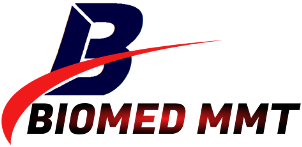 Dialectical behavior therapy (DBT) is a kind of talking treatment. It’s similar to private alcohol counselling and based upon cognitive-behavioral treatment (CBT), however, has actually been adjusted to assist individuals who experience feelings really extremely.
Dialectical behavior therapy (DBT) is a kind of talking treatment. It’s similar to private alcohol counselling and based upon cognitive-behavioral treatment (CBT), however, has actually been adjusted to assist individuals who experience feelings really extremely.
It’s generally utilized to deal with issues connected with borderline character condition (BPD). However, it has actually also been utilized more just recently to deal with a variety of other various kinds of psychological illness.
What are the objectives of DBT?
The objective of DBT is to assist you in finding out to handle your tough feelings by letting yourself experience, identify, and accept them. As you discover to accept and control your feelings, you also end up being more able to alter your damaging behavior. To assist you in accomplishing this, DBT therapists utilize a balance of approval and therapy strategies.
Approval methods
A DBT therapist may recommend that this behavior might have been the only method you have actually discovered to handle the extreme feelings you feel– so although it’s harming to you in the long-lasting, and might be disconcerting to other individuals, your behavior, in fact, makes good sense.
Therapy strategies
DBT therapists utilize therapy methods to motivate you to alter your behavior and find out more reliable methods of handling your distress. They motivate you to change behaviors that are hazardous to you with behaviors that can assist you in moving on with your life. You can find out to begin challenging your unhelpful ideas and establish a better, balanced method of looking at things.
A common course of DBT
DBT is generally run as a 24-week program, frequently taken two times to produce a one year program. There are also much shorter variations of DBT such as 12-week courses depending on the setting, and some variations do not consist of telephone training.
 DBT abilities training group
DBT abilities training group
A group facilitator teaches particular abilities in a class setting and sets jobs for the group members to practice in between sessions. The abilities training group usually satisfies as soon as weekly, normally for around 2 1/2 hours, throughout the 24-week program.
Specific treatment
Performing at the exact same time as the group, private treatment generally takes place weekly to improve your inspiration and dedication to the program. It’s also a chance to talk about and use particular DBT abilities to your present daily life.
Between-sessions telephone training.
When you’re having a hard time, on-the-spot telephone training from your therapist can be readily available at times throughout the week. Your therapist guides you and motivates you to use your brand-new DBT abilities to attend to and handle your problems.
DBT and Drug Abuse
 After establishing DBT, Linehan led a research study to figure out whether the method worked in dealing with females fighting borderline character condition and substance abuse.
After establishing DBT, Linehan led a research study to figure out whether the method worked in dealing with females fighting borderline character condition and substance abuse.
Scientists compared individuals who participated in DBT with a control group who got basic treatment. Those who were getting treatment throughout the pretreatment assessment were allowed to stick with their psychotherapists throughout the research study. Others went into alternative drug abuse or psychological health programs.
The outcomes revealed that DBT was more reliable than basic treatment in dealing with individuals with borderline character condition and a compound usage condition including opioids, drug, amphetamines, sedatives, hypnotics, and anti-anxiety medications. Scientists discovered that DBT customers revealed decreased drug abuse, and they were most likely to continue treatment than those in conventional treatment.
A 2015 research study released in the journal Addictive Behaviors utilized DBT in combination with cultural, standard, and spiritual practices to deal with 229 teenagers at an inpatient rehabilitation center. The outcomes revealed 96 percent of teenagers enhanced or recuperated from their compound usage conditions gradually.
 Another 2015 research study, released in Present Viewpoint in Psychology, examined numerous reports about using DBT-SUD in people with borderline character condition and several drug reliances.
Another 2015 research study, released in Present Viewpoint in Psychology, examined numerous reports about using DBT-SUD in people with borderline character condition and several drug reliances.
DBT-SUD is a customized variation of dialectical behavior therapy that integrates drug abuse avoidance techniques to assist people in conquering dependency. Through this technique, therapists utilize analytical methods to talk about the value of damage decrease and a reasonable technique for regression avoidance.
Scientist concluded that DBT-SUD has actually revealed guarantee in dealing with drug conditions amongst females with borderline character condition, and it might be handy in dealing with other drug-using populations.…


 Teach abilities for stopping alcohol and drug usage and preventing regression: Once an individual ends up being reliant upon alcohol or other drugs, they genuinely understand how to stop their usage and to avoid regression. Cognitive-Behavioral Treatment, CBT teaches clients why they yearn for drugs and how to manage to want; how to avoid the locations, things and individuals linked to drugs; how to deal with harsh sensations that can activate regression; how to prevent a small slip or lapse from ending up being a significant regression.
Teach abilities for stopping alcohol and drug usage and preventing regression: Once an individual ends up being reliant upon alcohol or other drugs, they genuinely understand how to stop their usage and to avoid regression. Cognitive-Behavioral Treatment, CBT teaches clients why they yearn for drugs and how to manage to want; how to avoid the locations, things and individuals linked to drugs; how to deal with harsh sensations that can activate regression; how to prevent a small slip or lapse from ending up being a significant regression.